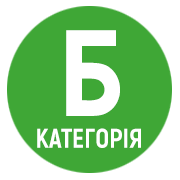ROLE OF MEDIA LITERACY IN FIGHTING INFODEMIC
DOI:
https://doi.org/10.32689/maup.philol.2023.1.11Keywords:
information literacy, infodemic, misinformation, disinformation, fake news.Abstract
This article presents a qualitative analysis aimed at addressing the issue of combating false information. Materials on combating the phenomenon of excessive dissemination of fake news were reviewed, and scientific literature on evidence-based practices was analyzed. The aim of the study is systematic review of the literature to identify new practices against fake news. The results showed that most studies focus on teaching information literacy in the fight against fake news. This article aims to discuss these practices to determine their effectiveness. Methodology. A systematic literature review of 32 articles, published between 2020–2022, was conducted to obtain known practices. After categorizing the practices, a qualitative analysis was performed. Scientific novelty. Digital media literacy is a new arena for implementing strategies to combat fake news. The topic is relevant because we live in a time of information revolutions. Current debates still revolve around information literacy strategies to overcome fake news. The topic will continue to be developed in scientific literature. Additional research is needed on this topic in modern society to provide effective strategies for practices. Conclusion. The role of information literacy in society remains an open discussion, but there is a consensus that the media should be involved in partnership and be part of a multidisciplinary approach. A multidisciplinary approach must be used because the phenomenon of excessive dissemination of fake news cannot be addressed by one solution. There is no doubt that the phenomenon of infodemic is spreading with each passing day, so the world must unite to make people literate, able to distinguish true information from fake and understand the difference between news and mere opinions for better consumption of media content.
References
An ad hoc WHO technical consultation managing the COVID-19 infodemic: call for action. World Health Organization, 2020.
By Claire Wardle PhD and Hossein Derakhshan With research support from Anne Burns and Nic Dias. Information disorder: toward an interdisciplinary framework for research and policy making. 2017. 90 p.
Cooke N. A. A right to be misinformed? Considering fake news as a form of information poverty. Advances in librarianship. 2021. P. 45–60. URL: https://doi.org/10.1108/s0065-283020210000050002
Cooke N. A. Fake news and alternative facts: information literacy in a post-truth era. Chicago : ALA Editions, 2018.
Delellis N. S. & Rubin V. L. COVID-19 #vaccineskill, and social media censoring: how librarians and educators can combat fake news and misinformation. against the grain. 2020.
De Paor S., Heravi B. Information literacy and fake news: how the field of librarianship can help combat the epidemic of fake news. The journal of academic librarianship. 2020. Vol. 46, no. 5. P. 102218. URL: https://doi.org/10.1016/j.acalib.2020.102218
How can psychological science help counter the spread of fake news? / S. van der Linden et al. The spanish journal of psychology. 2021. Vol. 24. URL: https://doi.org/10.1017/sjp.2021.23
https://www.lexico.com/en/definition/infodemic
https://www.mattwkane.com/wp-content/uploads/2020/01/Irresistible.pdf
Immunizing the public against misinformation. World Health Organization (WHO). URL: https://www. who.int/news-room/feature-stories/detail/immunizing-the-public-against-misinformation
Information Literacy. Retrieved December 8, 2020, from https://onlinecourses.swayam2.ac.in/nou20_ ge09/unit?unit=31&lesson=32 13. Kleinman B. Z. Fake news ‘travels faster’, study finds. BBC News. URL: https://www.bbc.com/news/ technology-43344256
Lim S. Academic library guides for tackling fake news: a content analysis. The journal of academic librarianship. 2020. Vol. 46, no. 5. P. 102195. URL: https://doi.org/10.1016/j.acalib.2020.102195
Lor P., Wiles B., Britz J. Re-thinking information ethics: truth, conspiracy theories, and librarians in the COVID-19 era. Libri. 2021. Vol. 71, no. 1. P. 1–14. URL: https://doi.org/10.1515/libri-2020-0158
Mignardi D., Sturge J. Check your bias at the school library door: the power of the school librarian in an evolving information landscape. Hope and a future: perspectives on the impact that librarians and libraries have on our world. 2021. P. 13–22. URL: https://doi.org/10.1108/s0065-283020210000048002
Naeem S. B., Bhatti R. The Covid‐19 ‘infodemic’: a new front for information professionals. Health information & libraries journal. 2020. Vol. 37, no. 3. P. 233–239. URL: https://doi.org/10.1111/hir.12311
Revez J., Corujo L. Librarians against fake news: a systematic literature review of library practices (jan. 2018–sept. 2020). The journal of academic librarianship. 2021. Vol. 47, no. 2. P. 102304. URL: https://doi. org/10.1016/j.acalib.2020.102304
Social media, political polarization, and political disinformation: a review of the scientific literature / J. Tucker et al. SSRN electronic journal. 2018. URL: https://doi.org/10.2139/ssrn.3144139
Søe S. O. A unified account of information, misinformation, and disinformation. Synthese. 2019. URL: https://doi.org/10.1007/s11229-019-02444-x
The role of libraries in misinformation programming: a research agenda / J. C. Young et al. Journal of librarianship and information science. 2020. P. 096100062096665. URL: https://doi.org/10.1177/0961000620966650
Toward a comprehensive model of fake news: a new approach to examine the creation and sharing of false information / A. P. Weiss et al. Societies. 2021. Vol. 11, no. 3. P. 82. URL: https://doi.org/10.3390/ soc11030082
What we are talking about when we talk about social media: a framework for study / J. W. Treem et al. Sociology compass. 2016. Vol. 10, no. 9. P. 768–784. URL: https://doi.org/10.1111/soc4.12404
“Who is gullible to political disinformation?”: predicting susceptibility of university students to fake news / R. P. Bringula et al. Journal of information technology & politics. 2021. P. 1–15. URL: https://doi.org/ 10.1080/19331681.2021.1945988
Zimdars M., McLeod K. Fake news: understanding media and misinformation in the digital age. MIT Press, 2020. 416 p.






